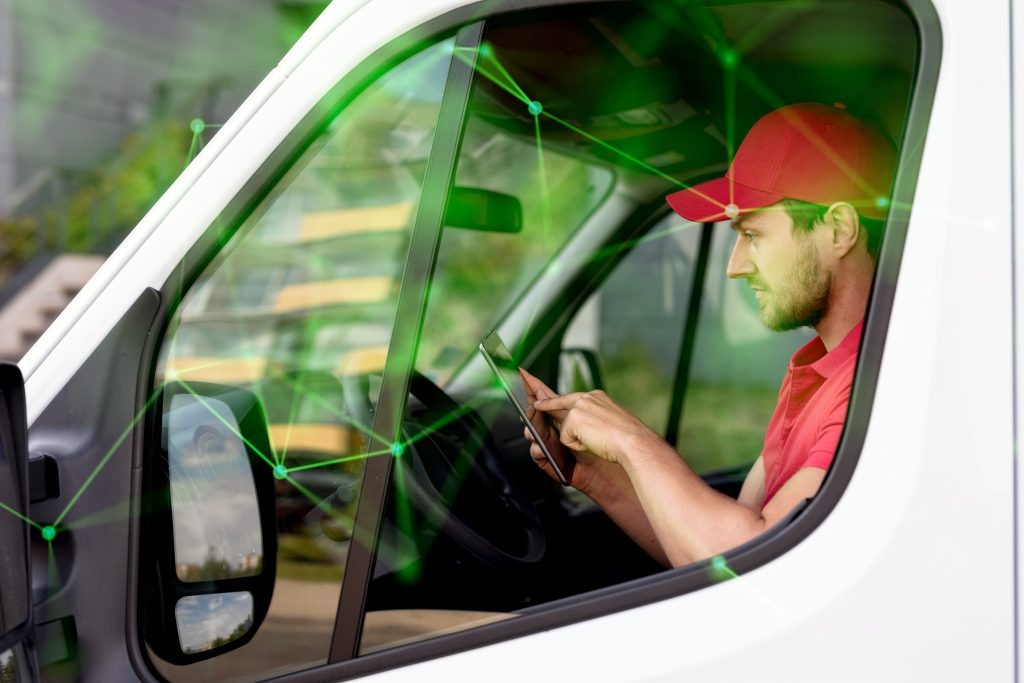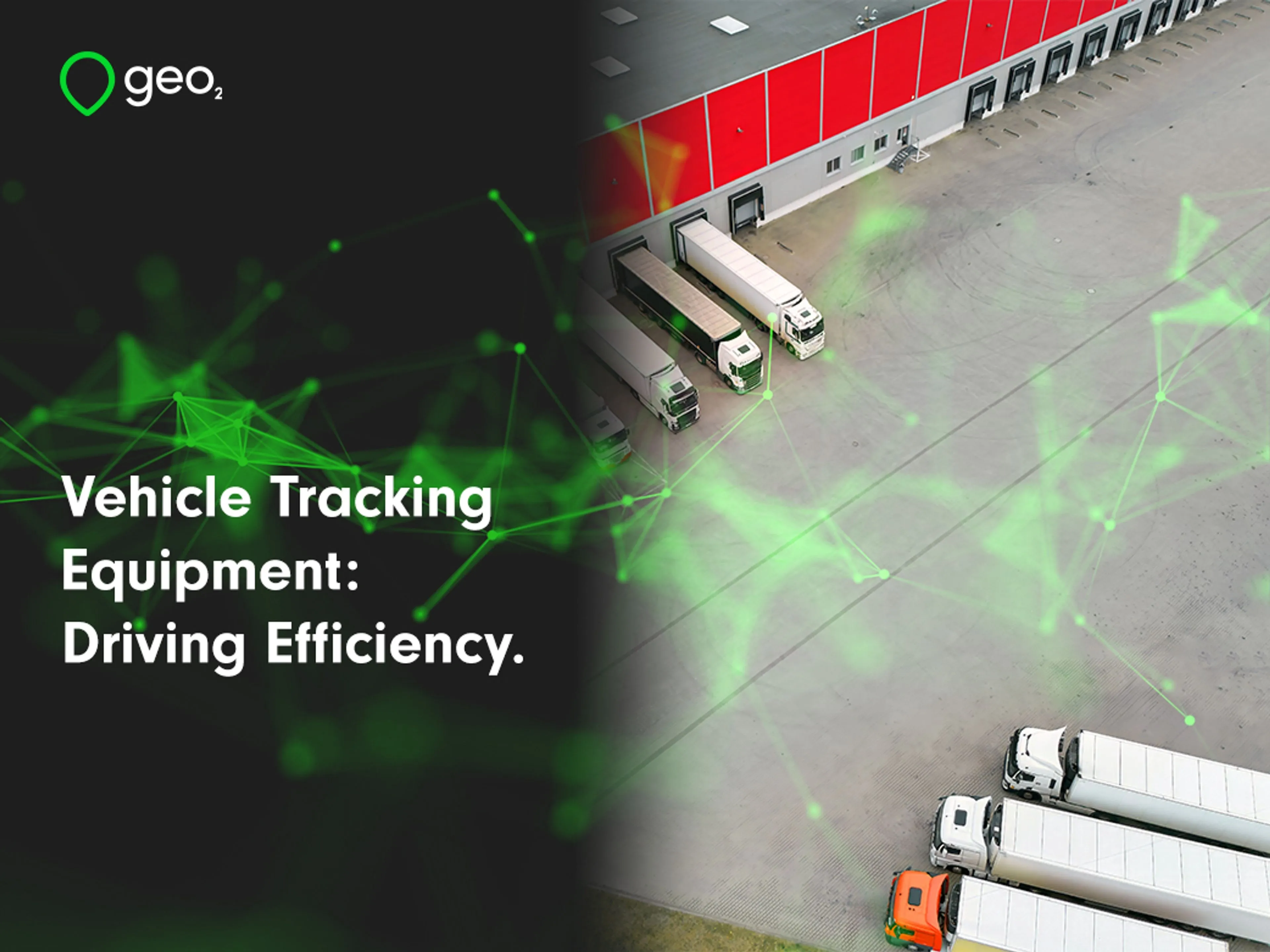Understanding Vehicle Tracking Equipment
Vehicle tracking equipment uses GPS to show where your vehicles are in real-time and gives other important details. These devices are important for fleet management, helping managers keep track of and improve how their fleet operates.
Benefits of Vehicle Trackers
- Improved Efficiency: Vehicle trackers help in optimizing routes, reducing fuel consumption, and enhancing overall operational efficiency.
- Enhanced Safety: Real-time tracking ensures vehicles are monitored constantly, helping swift response during emergencies.
- Cost Savings: By optimizing routes and reducing fuel consumption, vehicle trackers can significantly cut operational costs.

Types of Vehicle Tracking Devices
There are several types of vehicle tracking devices available, each with its unique features and benefits. Let's take a closer look at the most common ones:
Battery-Powered Trackers
Battery-powered trackers are portable and can be easily installed in any vehicle. They are ideal for temporary tracking needs and are often used for personal vehicles or rental fleets.
- Pros: Easy to install, portable, and versatile.
- Cons: Limited battery life, requires regular charging.
OBD II Port Trackers
OBD II port trackers plug directly into the On-Board Diagnostics (OBD) port of a vehicle. They are popular among fleet managers due to their ease of installation and the extensive data they provide.
- Pros: Easy installation, access to vehicle diagnostics, real-time tracking.
- Cons: Only compatible with vehicles manufactured after 1996, can be easily removed.
GPS Trackers
GPS trackers are the most advanced type of vehicle tracking devices. They offer real-time tracking, route optimization, and various other features that make them ideal for large fleets.
- Pros: Real-time tracking, route optimization, extensive features.
- Cons: Higher cost, requires professional installation in some cases.

The Top Benefits of Using Car Tracking Devices.
Car tracking devices offer many benefits that can help improve how you work. One key benefit is real-time tracking, which lets you see where your vehicles are at any time. This helps with planning better routes and making sure deliveries are on time.
Another key benefit is reduced maintenance costs. By monitoring your vehicles' performance, you can identify potential issues before they become major problems. This proactive approach helps minimize downtime and keeps your fleet running smoothly.
Improved driver behavior is another advantage of using car tracking devices. By providing insights into driving habits, you can address any unsafe practices and promote safer driving. This not only reduces the risk of accidents but also helps lower insurance premiums.
How to Choose the Right Tracking Device
Picking the right tracking device means considering a few things. One key factor is the cost. While cheaper car trackers can save you money, make sure they have all the features you need.
Features are important to think about. Look for devices that can track in real-time, set up geofences, and monitor how drivers behave. The tracker must work with different vehicle types because some might not fit all models.
Finally, a reliable customer support system is essential. Ensure the provider offers prompt assistance in case of any issues or questions. Good customer support can make a significant difference in your overall experience.

Cheap Car Tracking vs. Traditional Solutions
When you compare cheap car tracking devices to regular GPS systems, it's clear that the cheap ones are more cost-effective. Regular GPS systems are expensive to start and have monthly fees. In contrast, cheap car tracking devices have low starting costs and flexible subscription options. This makes them a great choice for small businesses and individual car owners.
Implementing a Tracking System: What to Expect.
Setting up a tracking system is simple. First, choose the right device and plan for your needs and budget. Follow the producer's setup instructions. Attach battery-powered trackers or plug OBD II trackers into your vehicle's OBD II port.
Activate the device using the provider's app or website, and start tracking your vehicles in real time. Most systems have user-friendly interfaces for easy data access.
Integrating Vehicle Tracking with Business Operations
Adding vehicle tracking systems to your business can help make your operations more efficient and productive. These devices provide real-time data, allowing for better planning and improved routing and scheduling.
Using this information, businesses can cut down on fuel use and shorten travel time, saving money. Modern tracking systems come with powerful tools that help make detailed reports. These reports aid in making smart decisions and planning effectively.
To stay competitive, businesses need to use vehicle tracking technology. This helps them manage their operations better and make the most of their resources.

Enhancing Logistics with Vehicle Tracking and TMS
Combining vehicle tracking systems with a Transportation Management System (TMS) helps make logistics easier. This integration lets companies match real-time vehicle information with advanced route planning and scheduling tools from the TMS.
By doing this, companies can run more smoothly. Automation cuts down on manual work and mistakes. When vehicle tracking and TMS work together, they make better use of resources. This ensures effective use of assets and supports delivery models that keep customers happy.
These systems also provide important insights. This helps businesses improve their logistics plans and stay competitive in a fast-changing market.
Conclusion.
Vehicle tracking equipment helps fleet managers, vehicle owners, and logistics companies. They can track vehicles in real-time, reduce maintenance costs, and improve driver behavior. Affordable devices provide cost-effective options while keeping important features. Pick the right device and plan for an effective tracking system.
FREQUENTLY ASKED QUESTIONS
A vehicle tracking device is a small gadget placed in a car to show its location in real-time. It uses GPS technology to monitor where the car is going, and can also record details like how fast it goes, how far it travels, and how the driver behaves.
Related posts

Keep Your Fleet Running Smoothly with Key Vehicle Checks
Driving is exciting but you've got to be responsible. It's extremely important for drivers and people who plan transport to make sure cars are safe for the roads. This guide will show you important vehicle checks to keep your car running safely and avoid trouble.

Own Fleet or Carriers: Which is Best for Your Business?
In logistics and supply chain management, deciding whether to own a fleet or use carriers is a crucial choice. This choice can have significant implications for everything from cost efficiency to customer satisfaction. In this blog post, we’ll explore the pros and cons of each option to help you determine the best choice for your business.

What Does a Transport Manager Do?
In the bustling world of logistics and transportation, the role of a transport manager is pivotal. These professionals ensure that transportation operations run smoothly, efficiently, and adhere to all regulations. But what does a transport manager do daily? This post will provide an in-depth look at their responsibilities, the importance of their role, and the challenges they face.
